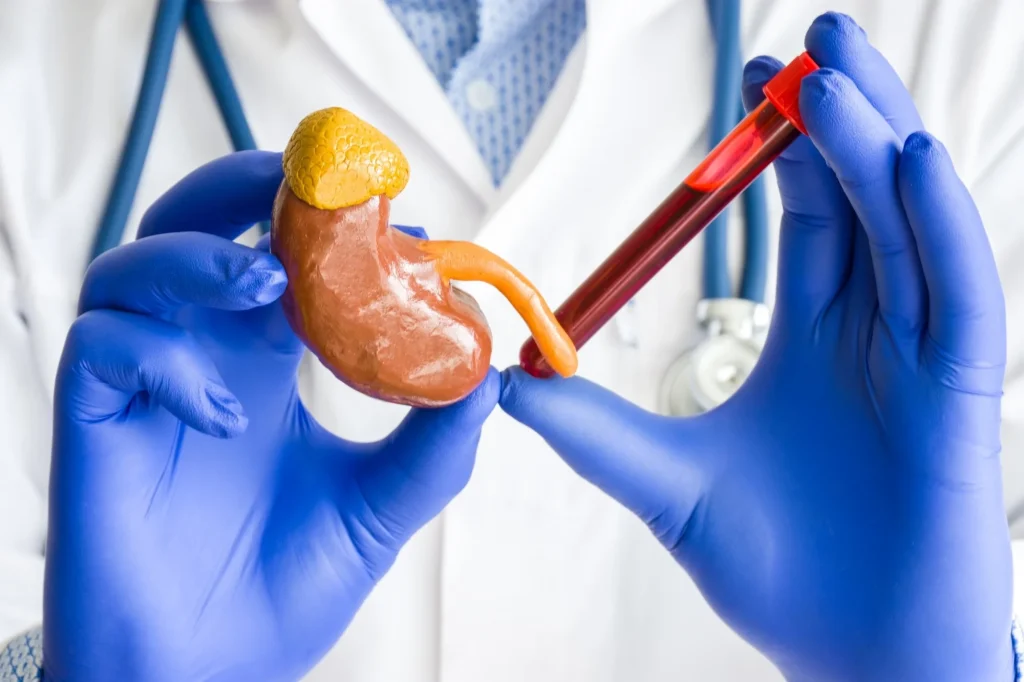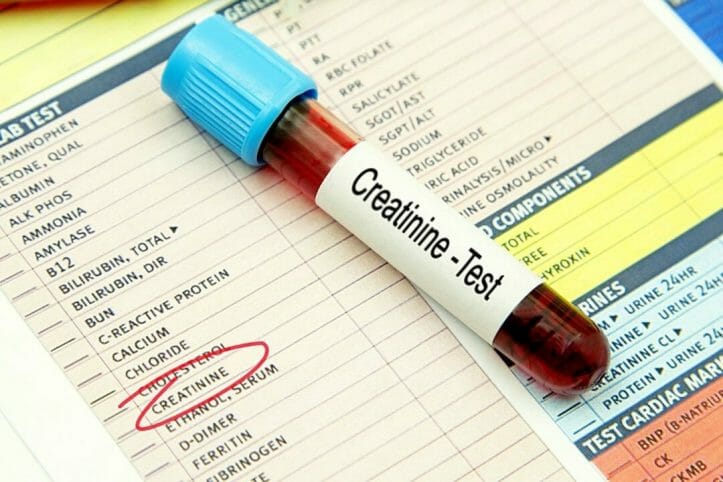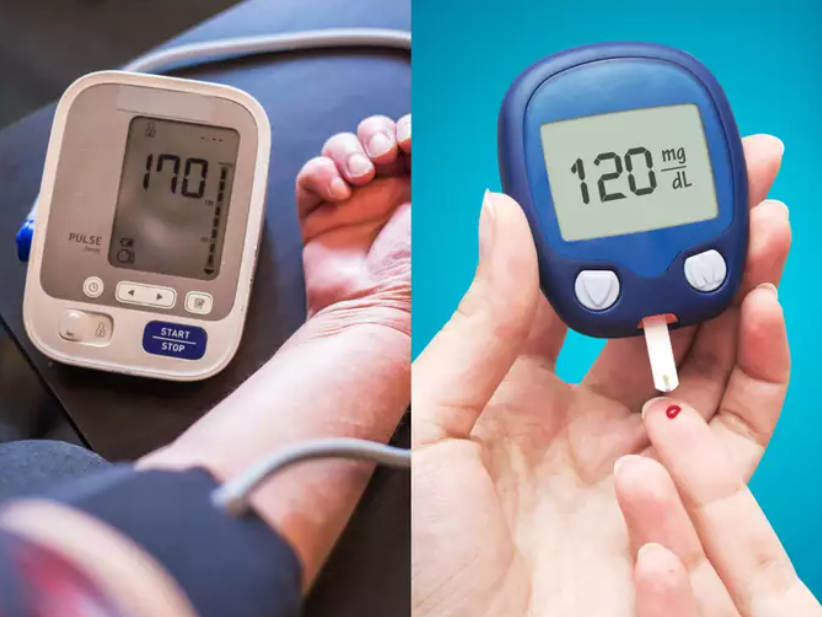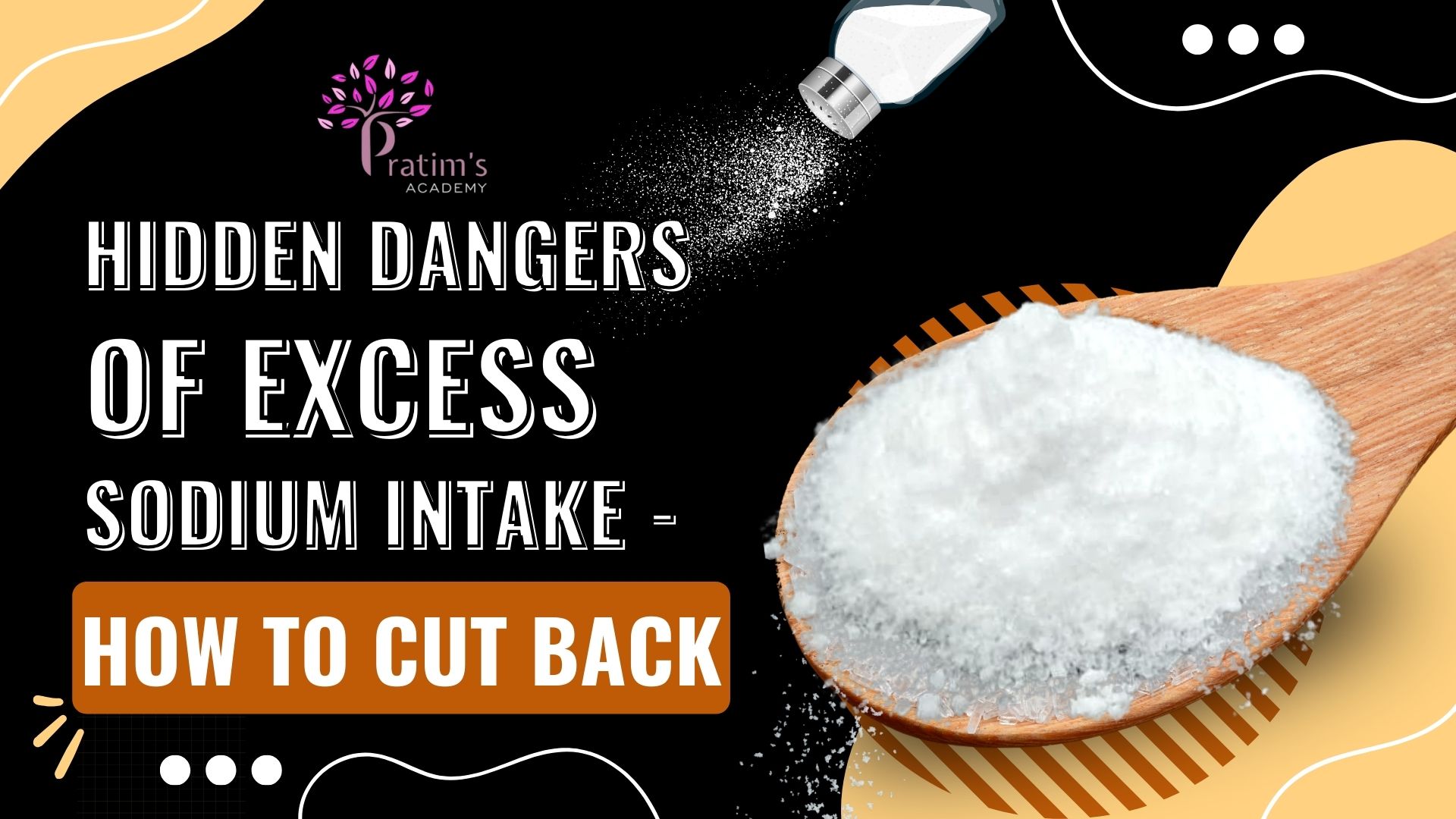
- 1977
- 19
The Creatinine Fear- Don’t let the rising level sink you in!
Meet Aniket, a 36-year-old professional working at a renowned IT firm. Recently married, he decided to undergo a routine health checkup to ensure his well-being. During the checkup, his creatinine level was measured at 1.4 mg/dl, which caused him to experience a wave of panic. Aniket returned home and immediately shared the news with his wife, convinced that his kidneys were failing. The word “creatinine” struck fear in his heart, and that night, sleep eluded him as his mind raced with worry.

Aniket’s mind was consumed by the negative connotations associated with creatinine. He imagined the worst-case scenarios, envisioning a life plagued by kidney disease and its potential complications. The fear of the unknown overwhelmed him, leaving him anxious and distraught.
This is a real life story we face every day in our OPD. In the realm of healthcare, creatinine is a term that often evokes fear and anxiety among individuals. It is a byproduct of muscle metabolism that is filtered out of the blood by the kidneys. Elevated levels of creatinine in the blood are commonly associated with kidney dysfunction. However, it’s important to understand that creatinine fear can lead to unnecessary stress and panic. In this blog, we will unreel the concept of creatinine and shed light on its significance in assessing kidney health.
Understanding Creatinine:
Creatinine is a waste product produced by the muscles through the breakdown of creatine, which plays a crucial role in energy production. It is transported via the bloodstream to the kidneys, where it is filtered and excreted in urine. The level of creatinine in the blood is an indicator of how well the kidneys are functioning. If the kidneys are not working optimally, creatinine accumulates in the blood, resulting in elevated levels.
Understanding Serum Creatinine Levels:

Serum creatinine levels refer to the amount of creatinine present in the blood. The creatinine test measures these levels to assess how effectively the kidneys are filtering waste from the bloodstream. Typically, higher levels of serum creatinine indicate reduced kidney function, while lower levels may point towards exceptional kidney health.
Normal Ranges of Creatinine:
The normal range of serum creatinine can vary depending on factors such as age, sex, and muscle mass, and overall health. Generally, the normal creatinine levels for adult males range from 0.6 to 1.2 milligrams per deciliter (mg/dL), and for adult females, the range is approximately 0.5 to 1.1 mg/dL. However, it’s essential to note that these values may vary slightly between laboratories and medical guidelines.
The Importance of the Creatinine Test:

The creatinine test plays a vital role in the diagnosis and monitoring of kidney function. It is commonly included as part of a renal function panel. By measuring serum creatinine levels, one can can evaluate the glomerular filtration rate (GFR), which is an indicator of kidney function. To measure GFR, serum creatinine(8 hours minimum fasting), age, gender, body weight is necessary. This information helps in the detection and management of conditions such as chronic kidney disease, acute kidney injury, and renal insufficiency.
The Fear Factor:

One of the main reasons why creatinine triggers fear is due to its association with kidney disease. High creatinine levels can indicate impaired kidney function or even kidney failure. However, it’s important to note that elevated creatinine levels alone are not a definitive diagnosis of kidney disease. Other factors, such as age, muscle mass, and overall health, can influence creatinine levels. Many individuals with slightly elevated creatinine levels lead perfectly normal lives without any kidney problems. Sometimes the level of creatinine differs laboratory to laboratory a variation of 0.2 mg/dl is quite normal. There is a common misconception that testing creatinine levels every day is a wise practice for monitoring kidney health. However, this belief is unfounded, as the rate of change of creatinine in the blood takes approximately 14 days to accurately reflect any significant shifts.
When abnormal is normal:

In the world of health and fitness, it is important to recognize that what may be considered abnormal for some individuals can actually be quite normal for others. Specifically, bodybuilders and heavily built individuals often exhibit higher serum creatinine levels due to their substantial muscle mass. This increase is a result of the greater production of creatinine in their bodies, rather than an indication of kidney dysfunction.

It’s crucial to understand that creatinine levels can be influenced by various factors, including hydration status. Severe dehydration can temporarily elevate creatinine levels, but once hydration is restored, the levels typically return to normal. Therefore, a temporary rise in creatinine due to dehydration should not be a cause for alarm.

Another scenario where creatinine levels may appear elevated is after consuming a high-protein meal. Protein breakdown contributes to increased creatinine production, leading to a transient spike in levels. This response is considered normal and does not necessarily indicate any underlying kidney issues.
Any sort of infection, fever, surgical stress, radiological test requiring radio contrast can cause transient rise in creatinine level. If anyone does a test during that phase the level of creatinine can come elevated.
By acknowledging these factors, we can avoid unnecessary worry and panic when encountering mildly elevated creatinine levels in certain situations. It’s important to remember that healthcare professionals take into account these contextual factors when interpreting creatinine test results, rather than solely relying on a single value.
When can creatinine rise?

Diabetes, hypertension, unhealthy lifestyle choices and diet, taking over the counter painkillers, and certain kidney conditions can lead to elevated creatinine levels. These factors, such as abnormal diet and sedentary habits, can put strain on the kidneys, impairing their ability to filter waste effectively. Consequently, creatinine accumulates in the blood, indicating potential kidney dysfunction. Monitoring and managing these underlying conditions is crucial to maintaining optimal kidney health and preventing further elevation of creatinine levels. Do not rely on a single lab report, always check creatinine level in a week’s gap. Consulting a Nephrologist for appropriate guidance and adopting a healthy lifestyle are essential steps in mitigating the risk of elevated creatinine. If creatinine rises due to any acute cause, it can come down once the cause is identified. It is advisable to consult a Nephrologist at earliest if someone creatinine on first attempt comes more than 2 mg/dl.
Aniket’s initial panic subsided as he became more educated about creatinine and its implications. He learned to trust the expertise of medical professionals and understand that a single elevated creatinine measurement does not equate to a life-altering condition. Aniket’s journey taught him the importance of addressing health concerns with a rational mind-set and seeking appropriate medical advice to alleviate unnecessary fear and anxiety.
Understanding creatinine and serum creatinine levels is essential for comprehending kidney health. The creatinine test serves as a valuable tool in assessing kidney function and detecting potential renal issues. While normal ranges provide a general guideline, it is important to consider individual factors and consult with healthcare professionals for accurate interpretation. By monitoring and addressing creatinine levels, we can take proactive steps towards maintaining optimal kidney health and overall well-being.
Comment
2023-07-26 06:51:35
Great guiding
2023-07-25 01:39:44
Fantastic
2023-07-24 23:56:56
Very educative. I am myself sufferer of wrong treatment for my elevated creatinine from a hospital like CMC Vellore, when I availed your treatment my creatinine level is very normal, you are not any a great Doctor but unparallel human being, you also adopt alternative treatment like Yoga etc. Moreover your assurance as a family head of patients that you are alright or your ailment will be recovered works as medicine itself. Keep it up Sir.
2023-07-24 23:34:11
Very enlightening. Thanks.
2023-07-24 22:57:40
Thanks for explaining sir?
2023-07-24 21:34:00
Feeling a great relief after understanding the rise of creatine in body and it\'s occurance and concerns. Explained in details. Thanks a lot
2023-07-24 21:01:17
Thanks for this explanation
2023-07-24 20:16:53
Sir your explanation are the best medicines of any disease ?
2023-07-24 20:14:38
Sir, Excellent explanation . Nice presentation
2023-07-24 20:01:14
Wonderfully explained. Thanks for sharing.
2023-07-23 03:53:11
Thanks for nicely explained .could u plz explained for tranaplant patients whose creatininr.level fluctuatrs
2023-07-22 07:28:49
Nicely explained and very helpful topic
2023-07-21 23:25:31
Thanks for the well explained information regarding creatinine. Grateful to you.
2023-07-21 17:05:21
Very convincing and well explained Doctor.Grateful and Thanks
2023-07-21 01:19:06
?
2023-07-17 06:57:36
Important information
2023-07-14 07:01:29
Nicely explained thanks
2023-07-14 07:01:28
Nicely explained thanks
Check Your EGFR
***We Promise, no spam!







2023-07-27 05:32:32
Great Sir